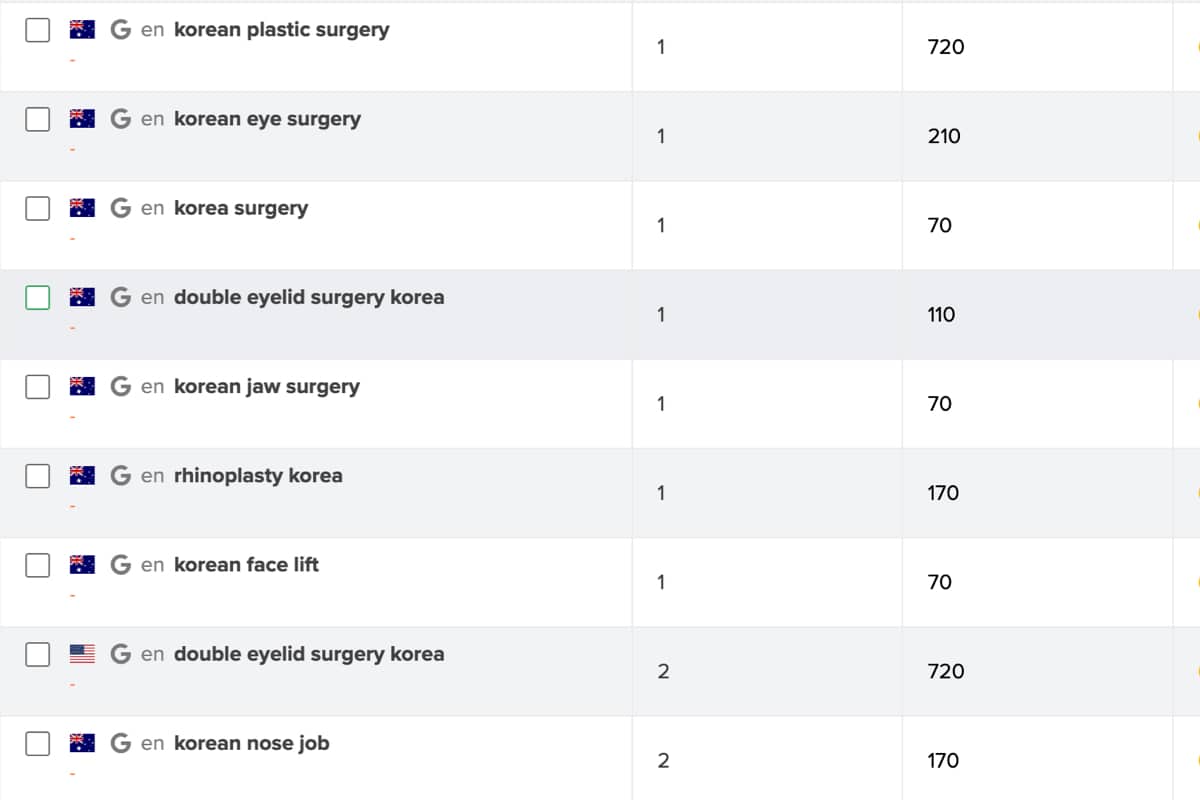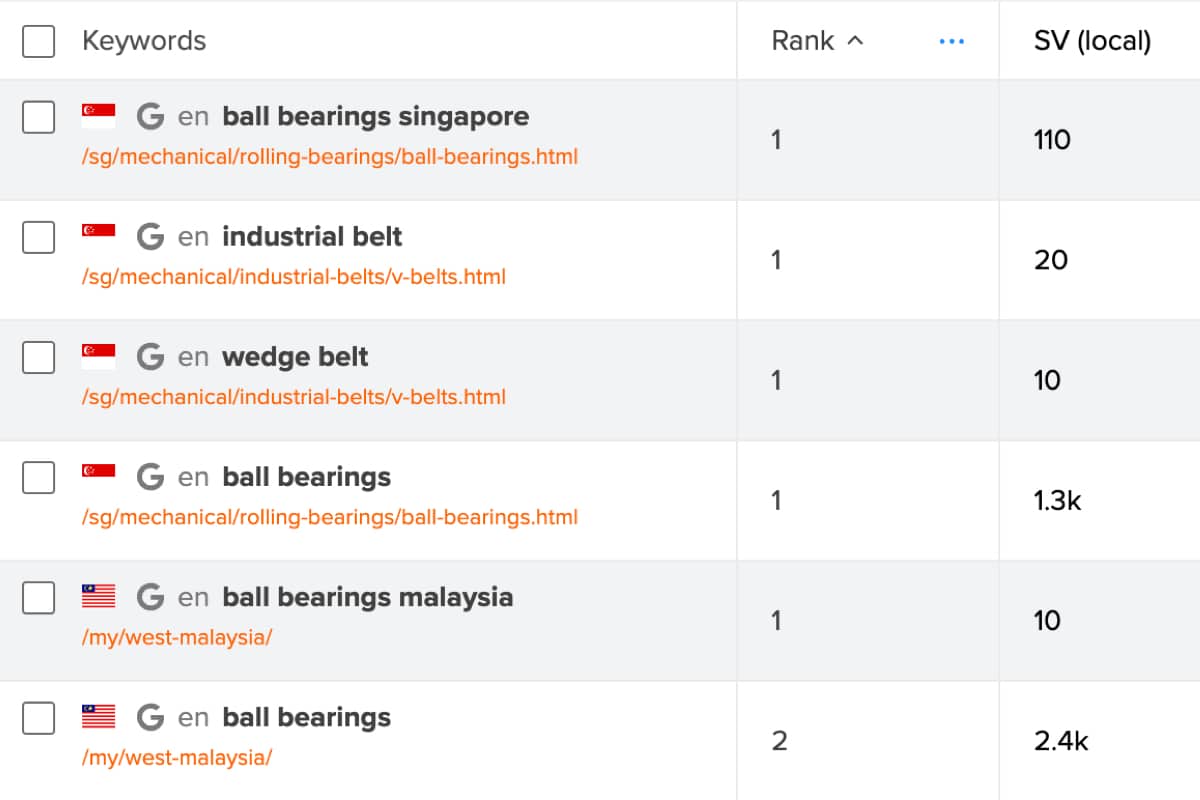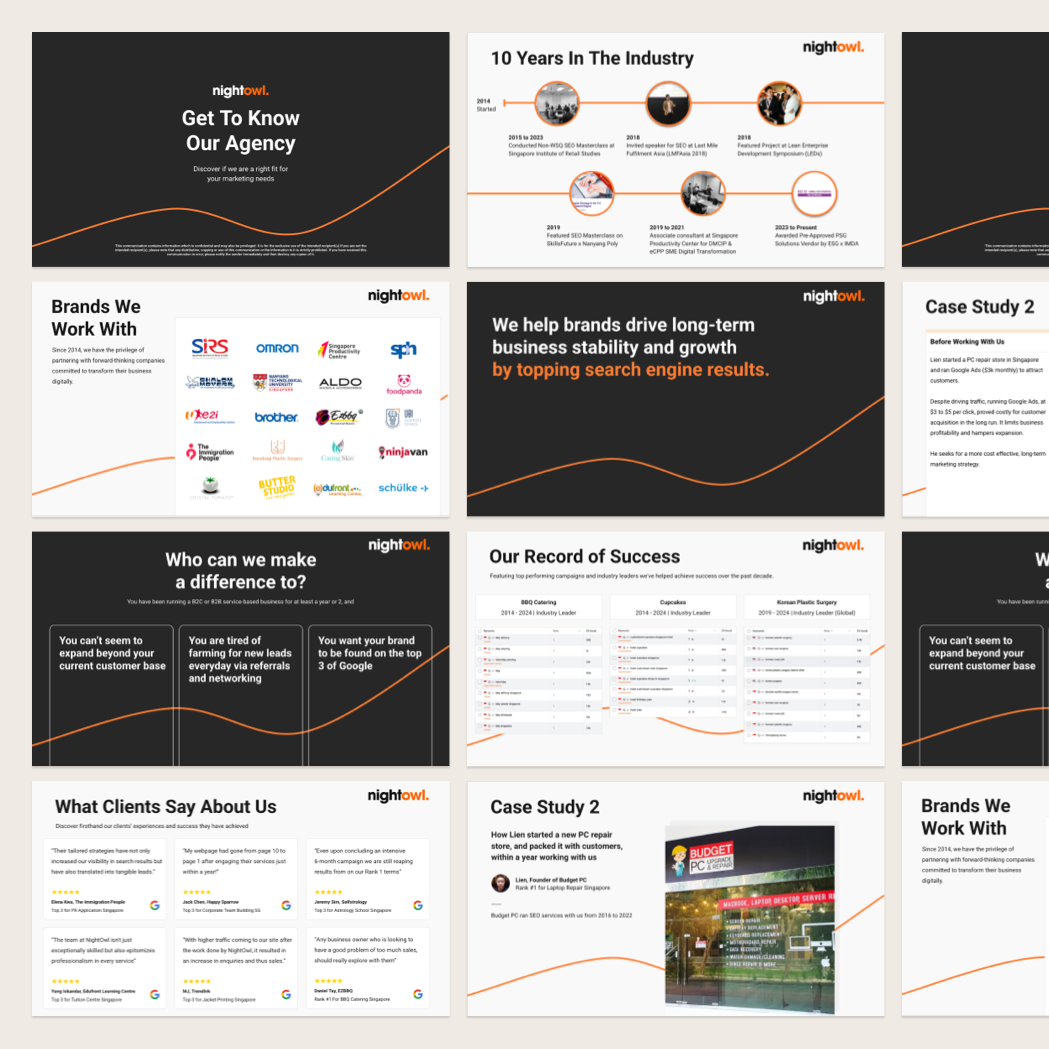Country-Code Top-Level Domains (ccTLDs) are country-specific website addresses that end with a country code, like .sg for Singapore or .jp for Japan. This is like having a separate website exclusively for each country you're targeting.
Pros:
Cons:
Subdirectories use folders within your main website to separate content for different countries. It's like having different departments within the same store.
Pros:
Cons:
You can create a new account at the end of the order process or on the following page. You can view all of your orders and subscriptions in your customer account. You can also change your addresses and your password.
For example, imagine your website has two versions: website.com/sg/ for Singapore and website.com/my/ for Malaysia.
Without hreflang tags, Google might see these pages as duplicates, potentially excluding one from search results and harming your SEO due to duplicate content penalties.
When hreflang tags are properly implemented, they inform Google that website.com/sg/ is the Singapore-specific version, while website.com/my/ is tailored for Malaysian users.
As a result, users in Malaysia searching for your website will see the /my/ version in search results, while users in Singapore will see the /sg/ version."
The same principle applies to different languages. For instance, hreflang tags can distinguish between an English page (/en/) and a French page (/fr/), ensuring that users always land on the version that matches their language preference."
Hreflang tags work by guiding search engines on three key aspects:
Language Detection: Identifies the language preferences of the user.
Region Targeting: Matches the correct regional version (e.g., UK English vs. US English).
Bidirectional Linking: Ensures search engines can link between all versions of your content, avoiding confusion.
Example Hreflang Code:
<link rel="alternate" hreflang="en-us" href="https://example.com/us/" />
<link rel="alternate" hreflang="fr-fr" href="https://example.com/fr/" />
<link rel="alternate" hreflang="ja-jp" href="https://example.com/jp/" />
In this example:
Bidirectional linking ensures that each version is linked back to the others, enabling search engines to correctly associate and display the right pages to the appropriate audience.
Effective localisation begins with comprehensive keyword research for each target region. Keywords often vary greatly, even when the language is the same. Without targeting the right terms, your website risks ranking for irrelevant keywords or not ranking at all.
To build localised content that ranks, you need to understand not just what people are searching for, but also how your competitors are meeting those demands."
Recommended Tools:
How Competitor Analysis Helps:
Once you have identified the keywords for each country through comprehensive research, the next step is to build and optimise pages specifically for those keywords."
How It Works:
Set Up an International URL Structure:
Deploy Hreflang Tags:
Tailor Content for Each Region:




At NightOwl, our pricing for international SEO starts at $30,000 per year for two countries. While we don’t quote a flat rate per country, our approach is designed to offer cost savings as the number of countries increases. This is because some technical SEO work—like implementing hreflang tags or structuring your site for international targeting—needs to be done only once, regardless of the number of regions.
The cost of international SEO depends on: - The number of countries and languages targeted - Competitor activity in each market - The difficulty of the keywords you aim to rank for - The scope of content localisation and translation
Rather than pricing per country, we quote for the entire campaign to ensure you get the best value. This holistic approach accounts for overlapping work across countries, such as technical optimisations and strategic planning, which lowers costs as you scale to more regions.
If you'd like to explore international SEO for your business, contact us to get a customised quote tailored to your goals.
Yes, NightOwl has extensive experience in ranking businesses across multiple countries. We’ve successfully managed international SEO campaigns for clients targeting up to seven countries, including Singapore, Malaysia, the United States, Australia, and the United Kingdom.
Each country comes with its unique market dynamics, competitors, and search engine preferences. Our team crafts customised strategies for each region, while leveraging shared technical frameworks to create cohesive, cost-effective campaigns.
Our approach has consistently delivered measurable results, such as achieving top 3 rankings for high-value keywords in multiple countries simultaneously. You can explore our international case studies to see how we’ve helped businesses thrive on a global scale.
Yes, we specialise in international SEO campaigns that include local translated languages. Whether it’s French, Spanish, Chinese, or any other language, we ensure your content is fully optimised to connect with local audiences effectively.
We collaborate with professional translators who understand the cultural nuances and search intent in each target region. This ensures that your content not only ranks well but also resonates with the local audience.
We conduct in-depth keyword research in the target language to identify the most effective terms for ranking. This ensures your website is tailored to the way people search in each specific market, boosting both visibility and engagement.
We have extensive experience successfully ranking websites in the top 3 for languages such as Korean, Thai, Vietnamese, Chinese, and Bahasa Indonesia.
The core techniques for optimising websites in local languages remain consistent. Whether it’s conducting keyword research, localising content, or implementing technical SEO, the principles are universally applicable. We adapt these strategies to account for cultural differences, search intent, and user behaviour specific to each language.
Our approach includes translating (at an additional cost) and localising content to align with local preferences while ensuring it adheres to SEO best practices. This balance ensures not only visibility in search engines but also engagement with the local audience.
While international SEO shares foundational principles with traditional SEO, it involves additional layers of complexity to ensure your website ranks well across multiple countries or regions. Factors like language preferences, cultural nuances, and local search behaviours come into play, requiring tailored strategies for success.
Unlike traditional SEO, international SEO must account for localised search engine algorithms and ranking factors. For instance, while Google is the dominant search engine globally, other search engines like Baidu (China) or Yandex (Russia) may require distinct optimisation techniques to achieve top rankings.
Content plays a critical role in international SEO. Localising content for different languages and regions ensures that your messaging resonates with local audiences. This involves more than simple translation; it includes cultural adaptation and keyword optimisation specific to the target audience.
International SEO integrates strategies for technical SEO, content, and link-building across multiple regions while maintaining a unified brand presence. It’s about creating a balance between local relevance and global consistency.


Address: 6001 Beach Rd, #22-01 Golden Mile Tower, Singapore 199589
Mobile: (+65) 8513 9812 | Email: hello@nightowl.sg
Working Hours: Mon to Fri, 9AM to 6PM